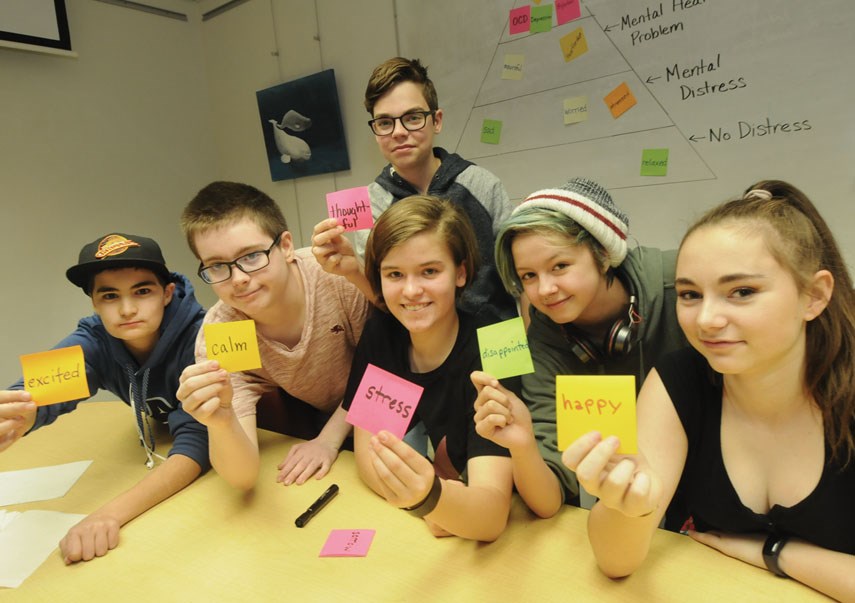Canadian Olympian Clara Hughes has had it. So has pop star Lady Gaga and soccer player David Beckham.
That such successful and famous people have struggled with mental illness might be news to many teens. But dispelling the myths around mental illness is part of the message being taught to Grade 9 students across the North Shore as part of a new mental health curriculum.
In North Vancouver, the topic of mental health was up for discussion April 23 to 25 as Grade 9 students took part in a two-and-a-half-day mental health literacy conference at Sutherland Secondary.
Teaching kids what’s normal stress and anxiety, and what could signal a deeper problem is an important part of the program, said Jeremy Church, principal at Mountainside Secondary who helped launch the North Shore program two years ago.
“There’s a certain amount of stress that’s good for youth to experience,” says Church. Anxiety and sadness can be a normal part of life. “It might take you some time to get over but it doesn’t mean you have a mental illness,” said Church.
The program teaches teens techniques – everything from mindfulness to just going for a walk - to calm themselves down, get perspective and “get back in charge of your brain,” says Church.
They’re also taught to spot more worrying symptoms – when teens stop taking part in activities they used to enjoy or withdraw from spending time with their friends.
Dr. Stan Kutcher of Dalhousie University developed the program, designed to give students practical and realistic information and combat the stigma around mental illness.
This is the second year schools on the North Shore have offered the mental health curriculum, the first program of its kind for public schools in the province.
Both Sutherland and Rockridge host conferences for their Grade 9 students while other schools include the information over six to 10 hours in PE classes.
Grade 9 was chosen because that’s a typical age for the onset of mental health disorders.
The idea is to de-stigmatize mental illness, educate students about their brains and offer tools and resources to help when there are problems.
Topics covered in the conference this week at Sutherland included coping strategies to manage stress and anxiety, information about specific mental illnesses, how substance use can contribute to the development of mental health problems, and resources available in the community to help teens struggling with their mental health.
Next month, UBC will coordinate further training with Kutcher and teachers from 16 school districts across the province about how to put similar programs in place in their school districts.
On the North Shore, organizers are also thinking about how parts of the program can be adapted for intermediate students in elementary schools.
Those involved in organizing the conference at Sutherland this week don’t expect changes to happen overnight, but stress getting information out to teens and talking openly about mental health can help open up important conversations.
Kim Jonat, vice-principal of Sutherland, said students seem more willing to talk about mental health since the program launched.
Including examples of celebrities who’ve struggled with mental illness lets students know “you can lead a successful life” even with mental health challenges, said Jonat. “This is nothing to be ashamed of.”



